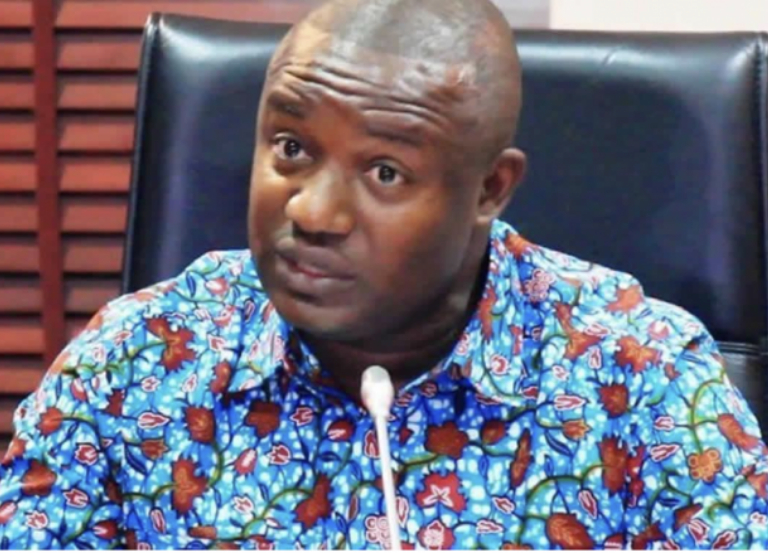The Minister of Energy and Green Transition, John Jinapor, has made a bold move to tackle Ghana’s growing energy sector crisis by announcing a significant 50% reduction in the Electricity Company of Ghana’s (ECG) budget allocation.
The company’s budget has been slashed from GH₵500 million to GH₵250 million, a decision that comes in response to growing concerns about the financial stability of the energy sector.
This decision follows alarming reports of missing containers at the port, which have raised questions about the company’s financial management and efficiency in addressing critical issues in the power distribution sector.
In a statement made on the floor of Parliament, Jinapor emphasized the urgency of addressing the mounting debt crisis in the energy sector, which has reached a staggering GH₵80 billion.
He warned that if immediate action is not taken, the sector could collapse, leading to severe disruptions in electricity supply across the country.
Jinapor expressed his determination to take tough decisions, no matter how challenging, to avoid further damage to the energy system, stating, “We must pay the power producers. If we don’t do something, this sector will collapse.”
This drastic budget reduction follows the announcement that in 2023, ECG’s allocated budget for procurement was GH₵935 million.
However, the company exceeded its budget by a staggering GH₵7.3 billion, a result of excessive spending on cable purchases.
This overspending has compounded the company’s financial difficulties, leading to revenue shortages and its inability to clear critical containers at the port, further straining the financial stability of the energy sector.
Jinapor’s decision to cut ECG’s budget is intended to prioritize payments to power producers, ensuring that the energy supply in the country remains stable.
However, this cut in funding could lead to further operational challenges for the company, which is already struggling with financial mismanagement and internal inefficiencies.
While the budget cut is seen as a necessary step to impose financial discipline, there are concerns that it may hinder ECG’s ability to effectively manage power distribution, potentially leading to more frequent outages and service disruptions.
The energy sector in Ghana is currently at a critical juncture. With mounting debts, poor financial oversight, and operational inefficiencies, the government is under immense pressure to make difficult decisions to stabilize the sector.
While the budget reduction is a bold step toward reducing the financial burden, it remains to be seen whether it will lead to long-term improvements or further exacerbate the challenges within ECG.
The government and stakeholders will need to continue addressing the underlying issues of overspending, inefficiency, and debt accumulation to avoid a full-scale collapse of the energy sector.
John Jinapor’s budget cut for ECG is part of a broader strategy to manage the financial instability in Ghana’s energy sector.
It highlights the government’s efforts to tackle the country’s growing debt crisis and ensure the sustainability of electricity supply, but it also raises concerns about the operational capacity of ECG and its ability to meet the demands of power distribution in the face of mounting financial pressure.







